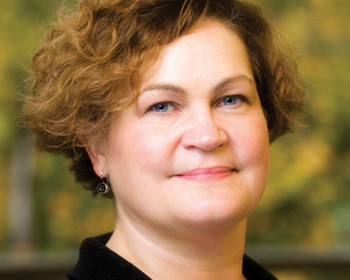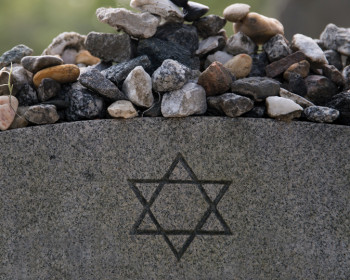Illustrious Firsts: A Timeline
By Tami Gierloff, Associate Dean of the Library and Professor of Law
The law school and its alumni have achieved a number of firsts worth celebrating. This timeline highlights some of the most notable.
1918
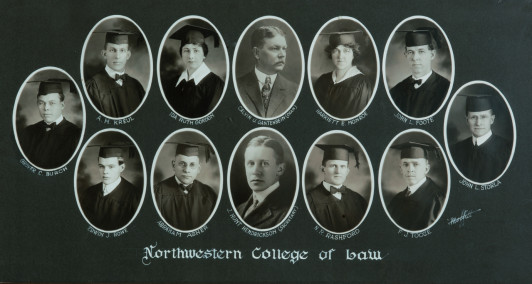
Northwestern College of Law graduated its first class. The 10 graduates included two women, Ida Ruth Gordon and Harriet E. Moore, at a time when there are very few female law students nationally.
1922
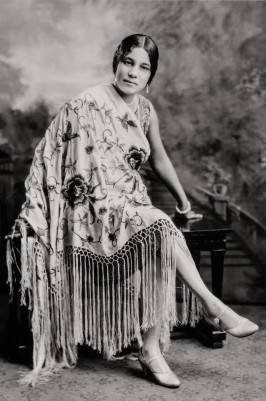
Beatrice Morrow Cannady became the first African American woman to graduate from law school in Oregon. (Her brother Almus Morrow graduated the same year.) Already famous locally, Cannady went on to earn national recognition for her work as an editor, educator, and civil rights activist.
1926
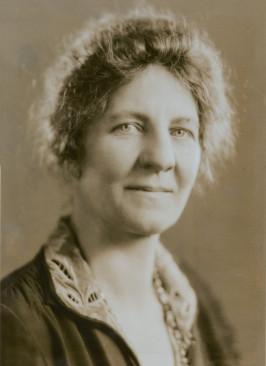
Mary Jane Spurlin ’24 became Oregon’s first female judge. She was appointed to the Multnomah District Court by Governor Walter M. Pierce to fill out the term of another judge. After serving for a year and a half, Spurlin went on to practice law in Portland for many decades.
Representatives of the classes from 1918 to 1926 formed the law school’s first alumni association. John L. Foote ’18 was elected president.
1931
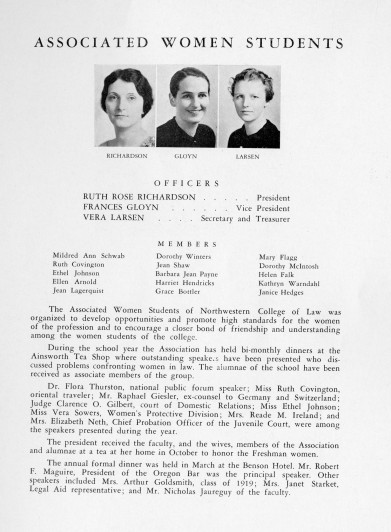
The Women’s League of the Northwestern College of Law, which renamed itself the Associated Women Students of Northwestern College of Law the following year, formed with the “purpose of bringing about closer contact and greater friendship among the women students of the school, and securing upon the student body council a representative of the feminine faction.”
1947
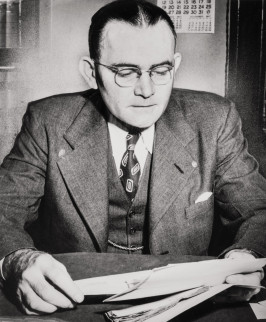
John Hall ’27 became the first graduate to be governor of Oregon. Speaker of the Oregon House of Representatives, Hall rose to the governorship abruptly as the result of a plane crash that killed the former governor, secretary of state, and senate president. Hall served in the position for just over a year.
1956
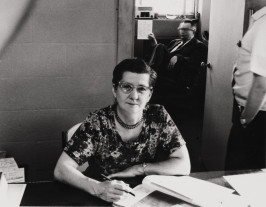
The law school hired its first full-time employee, Dorothy Cornelius. Previously a clerk for the Oregon Supreme Court, she was recruited by Judge John F. Gantenbein ’34 to become Northwestern College of Law’s secretary and registrar. The Cornelius Honor Society is named in her memory.
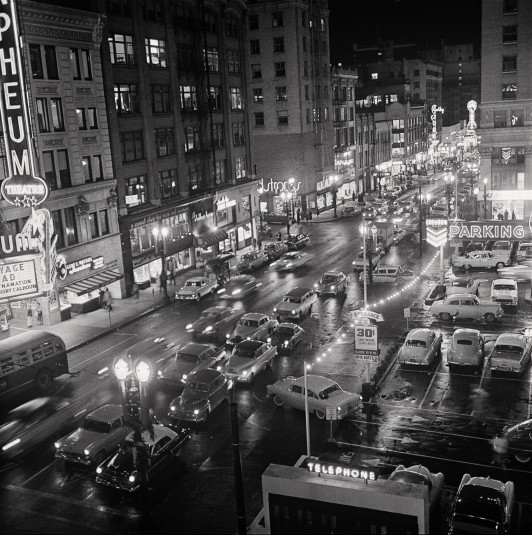
1961
Jean Lagerquist Lewis ’38 became the first female circuit court judge in Oregon when she was appointed to Multnomah County Circuit Court. She retired from the bench in 1978.
1965
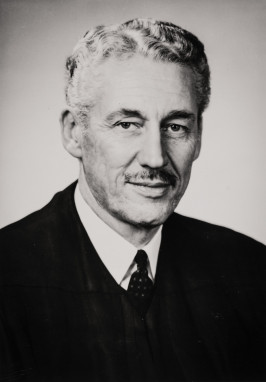
Ralph Holman ’37 became the first Northwestern College of Law graduate to sit on the Oregon Supreme Court. He served until 1980.
1966
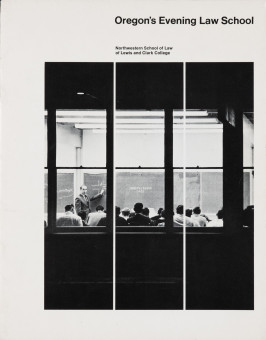
As a result of the merger with Lewis & Clark College, the law school moved from downtown Portland’s Giesy Building to temporary quarters on Lewis & Clark’s undergraduate campus during construction of a new law school campus.
1967
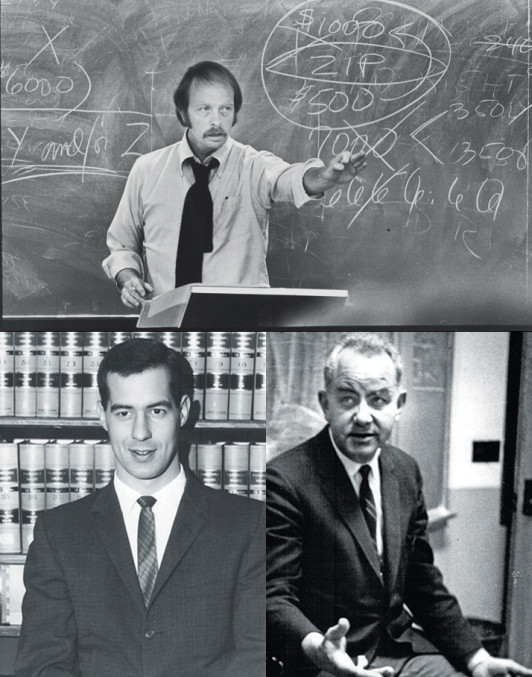
The law school hired its first full-time faculty members: Professors Jack Cairns ’54, Paul Gerhardt, Ronald Lansing, and Ross Runkel. Previously, all faculty members had been practicing judges and attorneys who served as adjunct professors.
1969
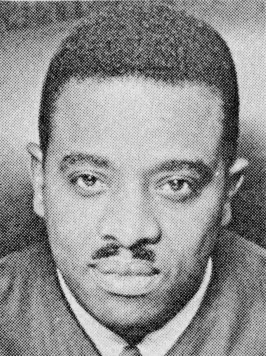
Aaron Brown Jr. ’59 became the first African American municipal court judge in Portland. When the Portland Municipal Court merged with the Multnomah County District Court in 1971, Governor Tom McCall appointed Brown as a district court judge. Brown successfully ran for election four times, facing opposition only once. He retired from the circuit court in 1995.
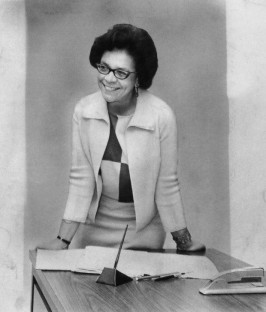
Mercedes Deiz ’59 became Oregon’s first African American female judge when McCall named her as a district court judge in Multnomah County. In 1972, she became the first African American woman to be elected county circuit court judge in Oregon, defeating seven other candidates, all of whom were male. Deiz served as judge until her retirement in 1992.
The law school created its first clinic.
1970
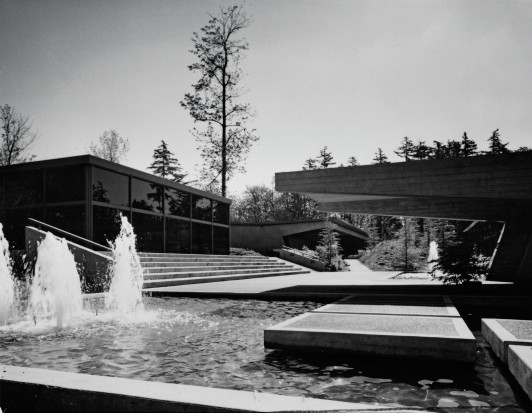
In time for the fall semester, the law school opened its first three buildings on the new law campus: the John F. Gantenbein Building, the Chester McCarty Classroom Building, and the Paul L. Boley Law Library. The structures were designed by noted architect Paul Thiry.
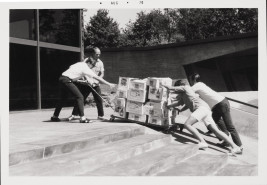
The first day division debuted with a class of 115 students. There were 80 evening students in the entering class.
Environmental Law established itself as the first law journal in the country dedicated solely to exploring natural resources and environmental issues. The first issue was published in September.
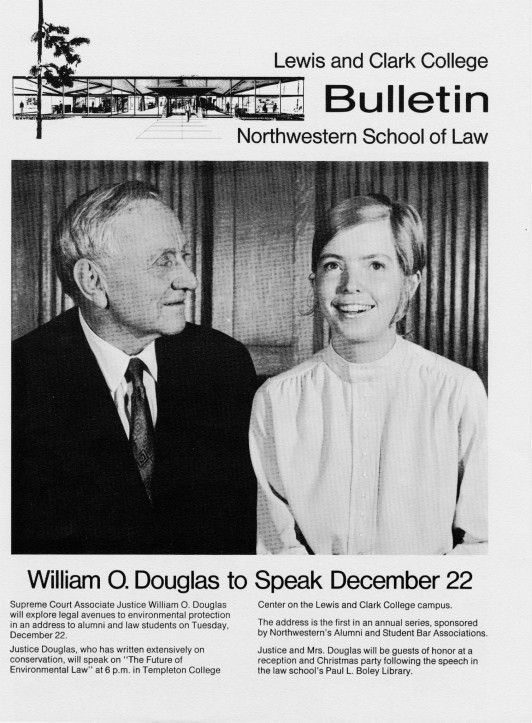
Associate Justice of the U.S. Supreme Court William O. Douglas, the first justice to visit the law school, inaugurated an annual environmental law lecture series in December.
1972
The law school held its first summer session.
1973
The law school is granted full accreditation by both the American Bar Association and the American Association of Law Schools.
1975
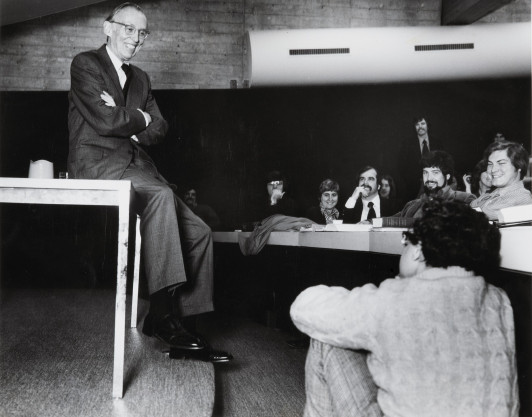
Associate Justice of the U.S. Supreme Court Lewis F. Powell Jr. visited the law school.
The law school launched its first diversity program, which would later be known as the Academic Enhancement Program.
1976
Construction of the William Swindells Legal Research Center was completed.
1977
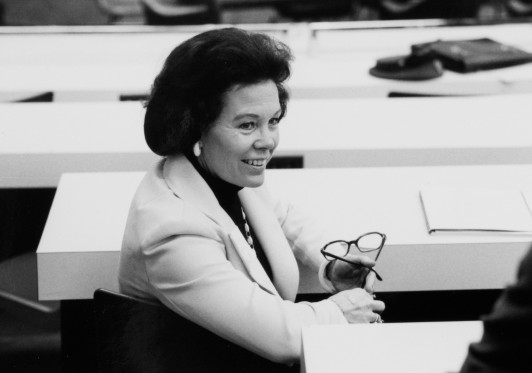
Betty Roberts ’66 became the first woman appointed to the Oregon Court of Appeals. She was appointed to the Oregon Supreme Court in 1982. Later that same year, Roberts was elected to a full term on the court, where she served until1986.
1979
The law school became the first academic institution in Oregon to install a Lexis research database terminal in its library.
The Street Law Program debuted.
1981
Boley Law Library was among the first in the state to install a Westlaw computer- assisted legal research terminal.
Lewis & Clark Law School published the first issue of its alumni magazine, the Advocate.
1988
The Environmental and Natural Resources Program offered its first LLM degree.
1990
The Public Interest Law Project, commonly known as PILP, was founded.
1991
U.S. News & World Report started ranking law schools by specialty. The law school’s Environmental Law Program debuted at #2 that year and has ranked either #1 or #2 each year since.
1992
Ruth Bader Ginsburg and her husband, Martin Ginsburg, spoke at commencement. The next year, Ruth Bader Ginsburg was appointed to the U.S. Supreme Court.
1994
Animal Law became the first journal dedicated to animal law issues.
1996
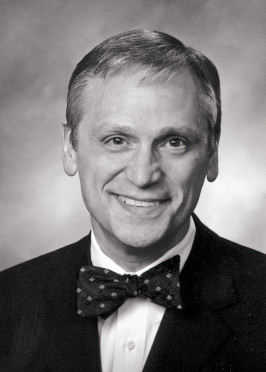
Earl Blumenauer BA ’70, JD ’76 became the first graduate of the law school to be elected a U.S. representative from Oregon. He is still serving Oregon’s third congressional district.
The National Crime Victim Law Institute was created.
The Pacific Environmental Advocacy Clinic began representing clients. In 2012, it changed its name to Earthrise Law Center.
2002
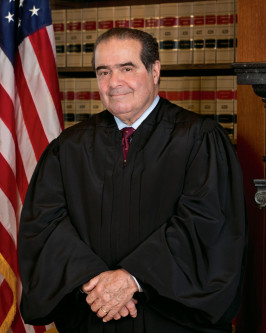
Associate Justice of the U.S. Supreme Court Antonin Scalia dedicated Louise and Erskine Wood Sr. Hall.
2006
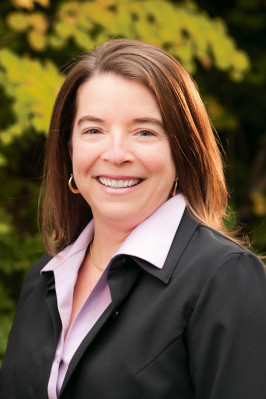
Professor Lydia Loren became the first woman to lead the law school when she was appointed to serve as interim dean.
The Small Business Legal Clinic opened its doors.
2008
The Center for Animal Law Studies was created.
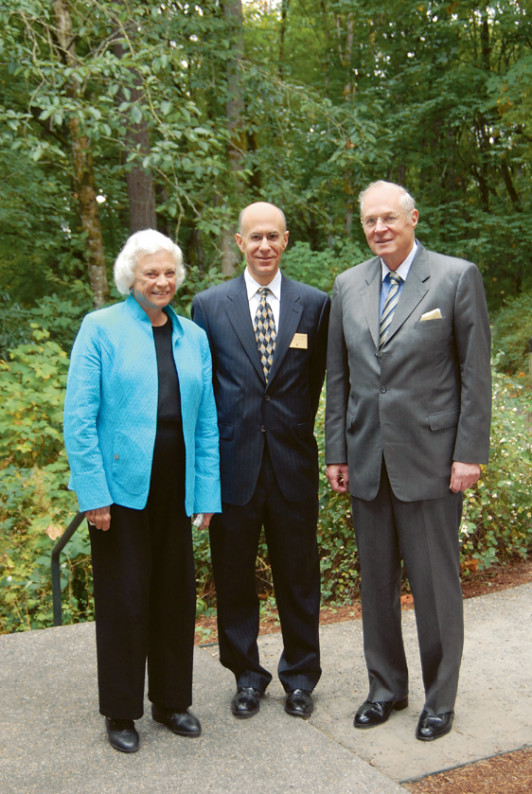
Retired Associate Justice of the U.S. Supreme Court Sandra Day O’Connor and Associate Justice of the U.S. Supreme Court Anthony M. Kennedy visited to address the combined 40th anniversary celebration of the Federal Judicial Center and annual meeting of the American Academy of Appellate Lawyers in September.
2012
The Center for Animal Law Studies offered the Animal Law LLM, the first degree of its kind.
2013
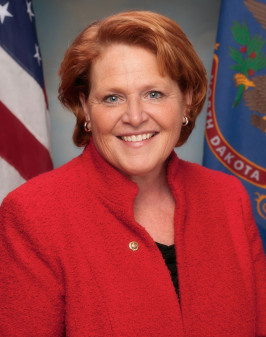
Heidi Heitkamp ’80 was elected to the U.S. Senate from North Dakota, making her both the law school’s first graduate to become a U.S. senator and the first woman to serve in that office for North Dakota.
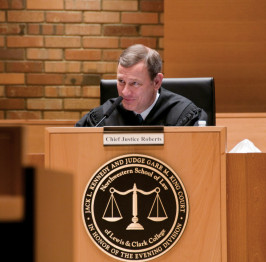
Chief Justice of the United States John G. Roberts Jr. presided over the panel judging the inaugural Lewis & Clark Environmental Law Moot Court Competition.
The Green Energy Institute was started.
2014
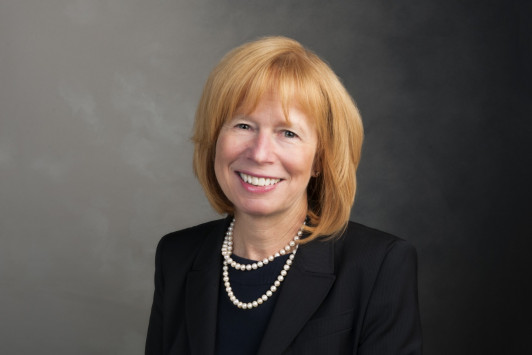
Professor Jennifer Johnson became the first woman to be appointed dean of Lewis & Clark Law School.
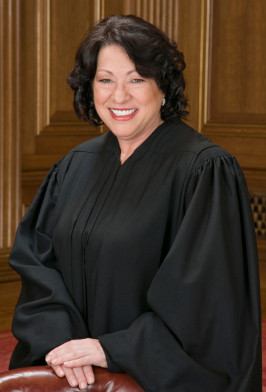
Associate Justice of the U.S. Supreme Court Sonia Sotomayor visited in March.
2015
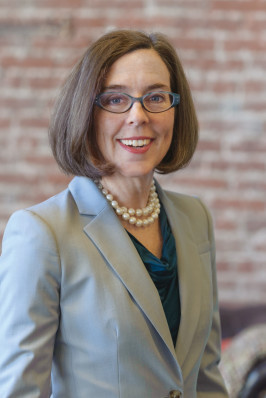
Kate Brown ’85 became the first female graduate to serve as governor of Oregon. Previously, Brown had served as Oregon’s secretary of state.
Sources
Geil, John Clinton. “Lewis & Clark Law School: Northwestern School of Law, 1884-1973.” 84 Oregon Historical Quarterly 389. Winter 1983.
Lansing, Ronald B. “Alice in Law School Land—a Story of Love and Law.” 65 Oregon State Bar Bulletin 19. January 2005.
Lansing, Ronald B. Crystalling the Legacy: Stories and Reflections on the Accreditation Era of a Law School, 1965-1974. 2011.
Thompson, Lindsay. “The Trail Blazers: Early Women at the Bar and in the Law School.” 4 The Advocate 24. Spring 1985.
The Lewis & Clark Law School Northwestern School of Law Bulletin. 1969-1976.
The Nor’wester (Northwestern College of Law Annual). 1922-1939.
More Advocate Magazine Stories
email jasbury@lclark.edu
voice 503-768-6605
Judy Asbury, Assistant Dean, Communications and External Relations
Advocate Magazine
Lewis & Clark Law School
10101 S. Terwilliger Boulevard MSC 51
Portland OR 97219
